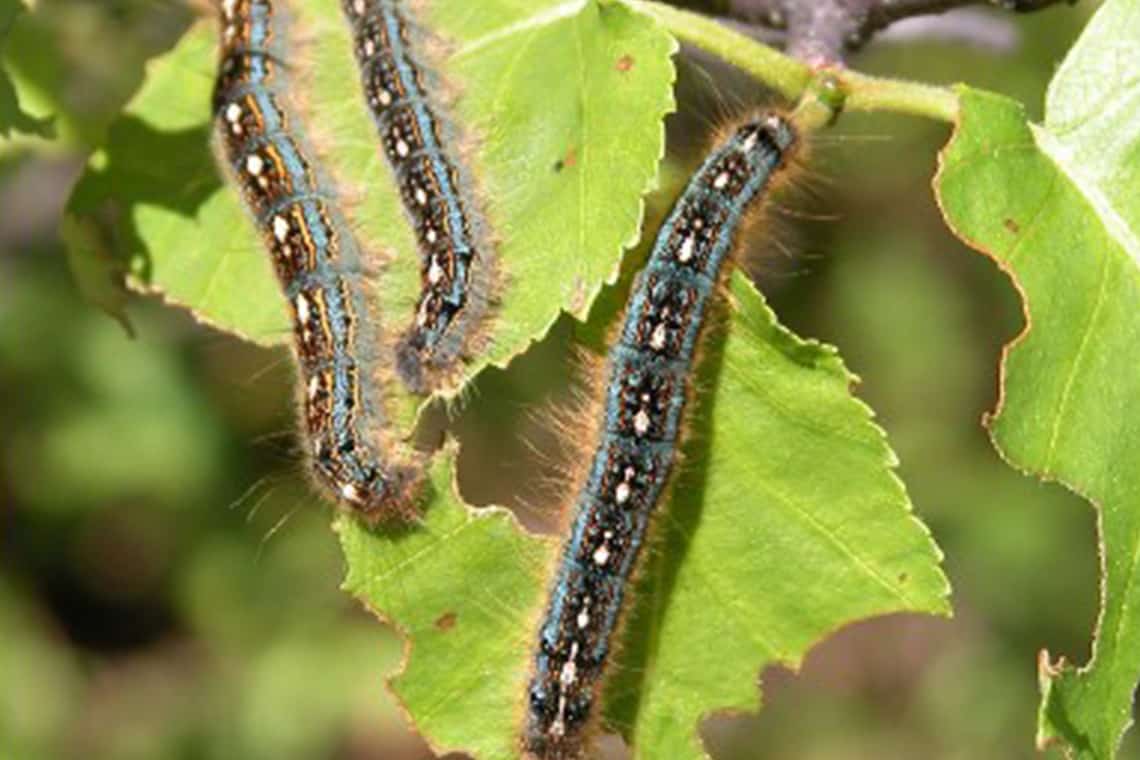Town of Oakville approves fall plan to continue effort to control LDD moth infestation
Published August 10, 2021 at 9:06 pm

The Town of Oakville is ramping up its fight against Lymantria Dispar Dispar (LDD) moth eggs.
On Monday night, Oakville Town Council approved $165,000 in funding to put towards a plan to remove the Gypsy moth eggs from over 2,300 municipal trees this fall.
Municipalities across the province, including Oakville, have been significantly impacted by LDD infestations this spring and the hope is that next year’s infestation will be curbed by preventative action now.
The Town, which approved the funding from Capital reserves, has already received 476 requests for help this year in dealing with LDD moths.
They already conducted an aerial spray this past spring to decrease the LDD population in Oakville.
“The Town’s tree canopy is one of our greatest assets and ongoing efforts are required to preserve it,” Oakville Mayor Rob Burton said.
“Preventative actions this fall will further protect our urban forest from these damaging invasive insects next spring.”
A non-native insect, the LDD month is considered a destructive pest here in North America.
The larvae or caterpillar stage of the insect feeds on leaves of oak and other deciduous trees causing their destruction. After this repeated defoliation, trees may die or be so weakened that they become vulnerable to other pests or disease.
The Town’s plan this fall will see them implement a large-scale egg scraping program. While it’s labour intensive, the hand-scraping of the leaves is the only viable option for the fall and winter months that help decrease the LDD population.
Aerial spraying is only effective when the caterpillars emerge from their eggs in the spring.
The Town’s tree service contractors will use an extendable pole pruner equipped with a scrapper that can reach as high as seven meters to removed the egg masses.
This will help reduce the need for an aerial truck and having to climb trees.
“This year was one of the highest populations of LDD moth in the province in the last 30 years,” said Chris Mark, director, Parks and Open Space. “According to the latest defoliation and egg mass survey conducted by the Town, there are areas of concern that could see another year of heavy LDD infestation in 2022.
“More and more residents are calling the town to find out how they can protect their trees. Acting now will help reduce next year’s population levels.”
The Town of Oakville has had a monitoring and mitigation program for LDD moth infestations since 2005 and have conducted aerial sprays around the town in 2008, 2018 and 2021.
Here’s what residents can do to protect their trees and help control the spread:
- In the summer and fall, physically remove LDD moth egg masses. Use a putty knife or trowel to scrape eggs into a container and destroy the eggs by leaving them in soapy water for several days.
- In the spring, apply sticky bands or burlap around trees to trap emerging LDD moth caterpillars. Commercial sticky bands can be found at most home and garden stores.
- Use gloves to hand-pick and crush caterpillars.
- Contact a professional tree care service provider to discuss spraying in accordance with label directions.
The Town’s Budget Committee will be receiving a report from the Forestry section in November that will include a budget for another potential aerial spray to further reduce LDD moth populations in 2022.
TOWN OF OAKVILLE PHOTO
insauga's Editorial Standards and Policies advertising





